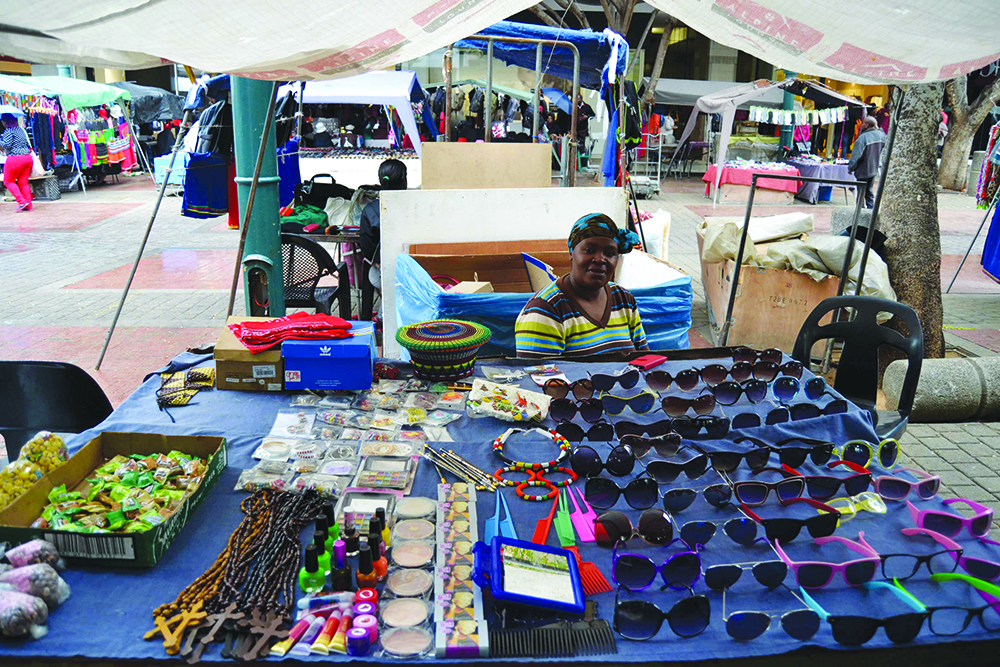By ‘Mamohaila Rampo
MASERU
To better improve the quality of life for low income groups, also adding value to the local economy, micro business entrepreneurs appeal for more inclusion from government, regarding decisions that involves their businesses.
In an interview with Informative Newspapers, Khathang Tema Lesotho Federation of InformalTraders‘ Association (LEFITA) Coordinator, ‘Mamolise Lawrence mentioned that from her experience with government, micro entrepreneurs are mostly included in minor conversations that involves minor issues.
The main goal for Micro entrepreneurs is to be treated equally just like any other formal trader that operates in conducive and healthy environment.
Lawrence said they are currently reviewing the Micro, Small and Medium Enterprises (MSMEs) Policy and Legal Framework for more inclusiveness of the Micro enterprise because Small and Micro businesses are often treated the same.
“It is inaccurate to categorize small businesses like a micro business because in the long run small businesses are the only once that will benefit in the New Urban Agenda.”
The New Urban Agenda serves as a framework for policy implementation at national and local levels towards sustainable urban development for the next twenty years also the agenda will assist Lesotho Achieve Sustainable Development Goals (SDGs) in the last decade, especially goal 11 of the SDGs, the Ministry of Local Government and Chieftainship, Home Affairs and Police in collaboration with the United Nations Habitat have already implemented the New Urban Agenda project.
The International LABAOUR Organization (ILO) explain that despite their crucial role for economic growth, MSMEs often face considerable challenges to provide decent work. Employment in these enterprises is more often than not characterized by poor and unsafe working conditions, and low-quality and low-skilled jobs. Moreover, the harsh competition has increasing number of MSMEs integrated into global supply chains and the Dire economic effects of the financial crisis have put additional pressure on investments in Occupational Safety and Health (OSH).
When shopping complexes are being build, some places have to be allocated for micro businesses for the eradication of informal settlements.
Vendor offers goods for sale to the public at large without having a permanent built-up structure from which to sell. She said they also assist the government in reducing the wage bill since they are self-employed.
To avoid conflict with vendors Lawrence said the Maseru City Council (MCC) should to work hand in hand with Micro business owners since they occupy space on the pavements or other public/private spaces or, they may be mobile in the sense that move from place to place by carrying their wares on push carts or in baskets on their heads.
Lawrence said if they are included in decision making regarding the new urban agenda which affects them. Vendors need working environment, access to clean water, and access to mobile clinic in their working environment. Electricity safety, water and access to proper medical health at their working space.
Another challenge that Micro business owner’s face is the registration of business, Lawrence said Micro business owners who are mostly street vendors fall victim to many associations that unlawfully manipulate and target vendors by taking up registration fees. She pleaded with the government saying it should protect Basotho from exploitation.


